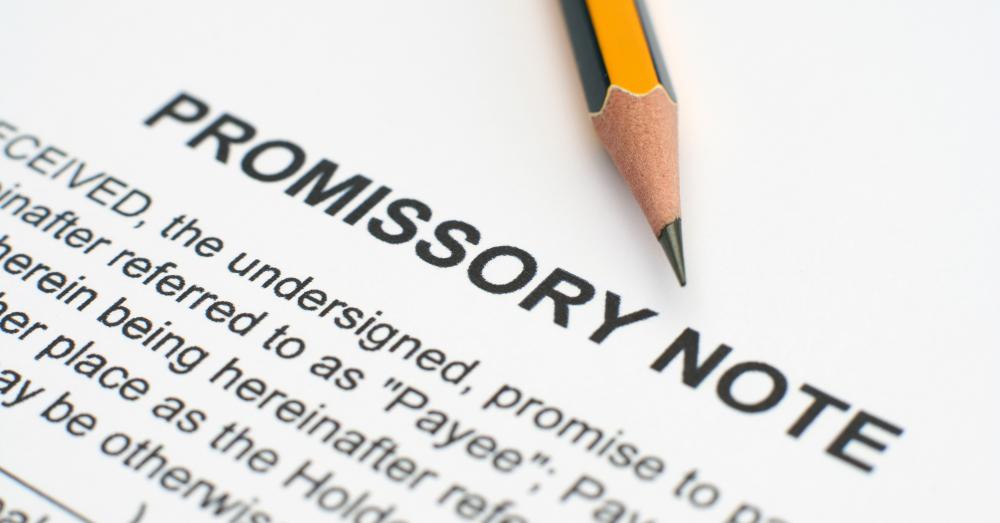At WiseGEEK, we're committed to delivering accurate, trustworthy information. Our expert-authored content is rigorously fact-checked and sourced from credible authorities. Discover how we uphold the highest standards in providing you with reliable knowledge.
What is a Note Payable?
A note payable is a written contract for a loan, specifying its terms and obligations. It is also known as promissory note or commercial paper, and it is signed by both the creditor and the debtor. Banks and businesses issue this document to make the borrowing official and clear, with details on defaults, pre-payments, and other negotiable terms. Notes are commonly used to raise capital for businesses.
In the US, a note payable includes three main terms: a principal amount, an interest rate, and a due date. A principal is basically the amount of the loan. When $500 US Dollars (USD) is borrowed, the note would have a principal amount of $500 USD to be used as basis for interest calculations. Interest is the cost of borrowing and is usually presented as a percentage of principal.

Interest rates can be fixed or variable. Fixed interest rate means that the interest percentage doesn't change during the life of the note. If a note has a 4% interest rate, this rate will apply until the note is paid off. A variable interest rate is one in which the interest percentage changes, usually based on an outside source, such as London Interbank Offered Rate (LIBOR). In countries where inflation is high, the interest rate is commonly adjusted with an inflation percentage.
The due date is an important item on a note payable since it is when the note is to be paid. At due date, full payment according to the terms of the note is expected and should be budgeted for. When payment is not received, then the note is considered to be in default and the creditor may be open for legal action. A note in default is a promise not fulfilled.
In US accounting, a note payable is booked as a liability, or a loan. The principal amount does not affect the income of a business, although it does affect its cash flows. Eventually, the note should be paid in full and the liability decreases to zero. Interest, on the other hand, is an expense, affecting income, as the "extra" paid to get the loan.
Notes payable are presented as current when due dates are within one year of the reporting date. When a note is due after one year, it is classified as long-term debt. Many times an installment is due on the note within a year, but not the entire note. In that case, the installment amount is classified as a current liability and the remaining is long-term.
AS FEATURED ON:
AS FEATURED ON:











Discuss this Article
Post your comments